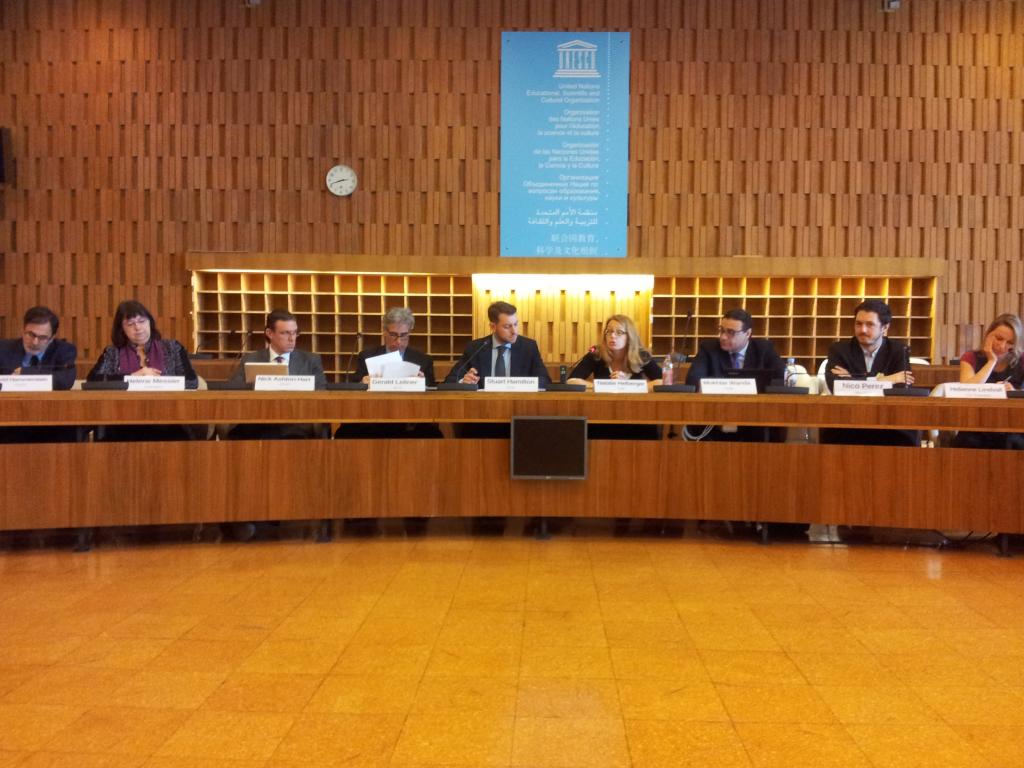Day Two at WSIS+10 Review Meeting and the IFLA panels
27 February 2013
The 2nd day of the WSIS+10 review meeting at UNESCO HQ in Paris was held on the 26th of February. The extensive programme included sessions on topics ranging from freedom of expression, mobile learning, to e-business and cultural diversity. The variety of panels gave the opportunity to learn more about best practices in these areas and the work done since 2003.

In the afternoon IFLA held two important sessions. The first one, 'What exactly am I buying', focused on ownership and licensing of digital information. 'The panel offered the chance to explore the expectations of consumers, creators and cultural custodians regarding the effects of licenses and terms and conditions on the notions of ownership in the digital age. Gerald Leitner, from IFLA's Governing board, emphasized the problems faced by libraries to acquire digital books rights in the US as in many countries worldwide. More broadly, David Hammerstein, representing Trans-Atlantic Consumer Dialogue (TACD), raised the question of the lack of transparency of online streaming platforms that never give any data on remuneration for authors and artists. The discussion raised many thoughtful points about the need of adapting copyright law to the reality faced by authors, users and libraries.
The second workshop was titled 'Supporting Knowledge Societies Through Public Access to the Internet'. The main point was to highlight the role of community institutions like libraries in providing public access to the Internet. Community examples were taken from Romania, Latvia and Ghana. Chris Coward from the University of Washington Technology and Social Change group (TASCHA) presented a new worldwide study led by the group on the impacts of public access to the Internet and underlined the importance of digital inclusion, and how public places permit users to develop digital competences. Andris Vilks, the National Librarian of Latvia, explained that the economic crisis in Latvia had seen library use increase by 20% as people used public access to the Internet to look for jobs and opportunity. The debate then addressed the question of the public access not only to the Internet but also to content and in particularly through the Open Access initiatives.
Stuart Hamilton, Director of Advocacy and policy at IFLA, concluded the day referring to the Beyond Access initiative that IFLA is involved in, and the advocacy led by IFLA in support of public libraries throughout the world.